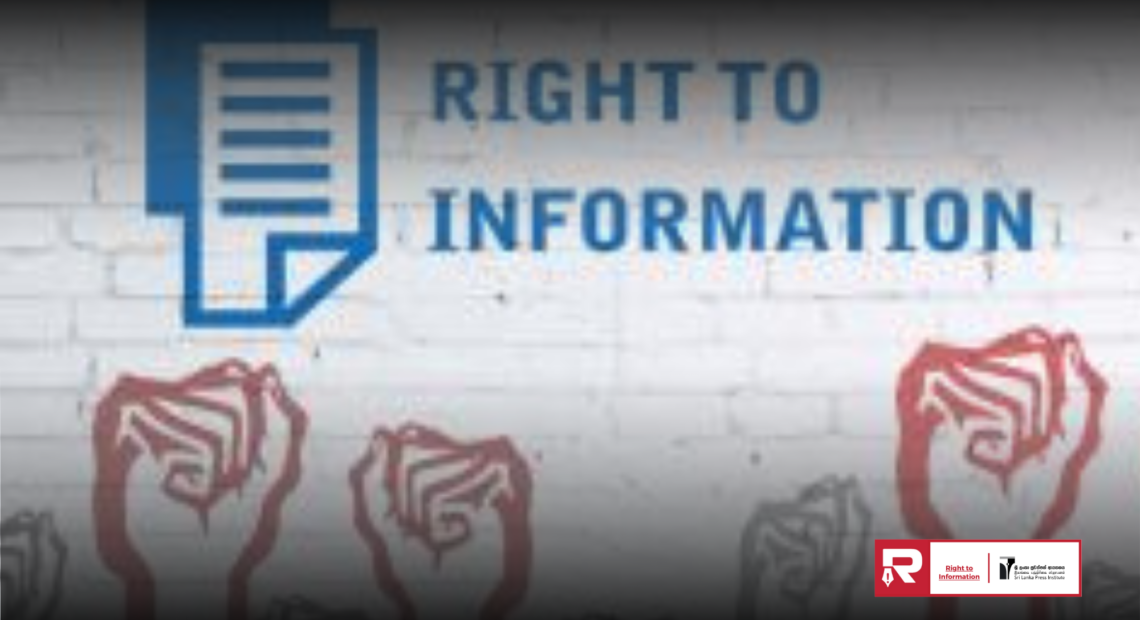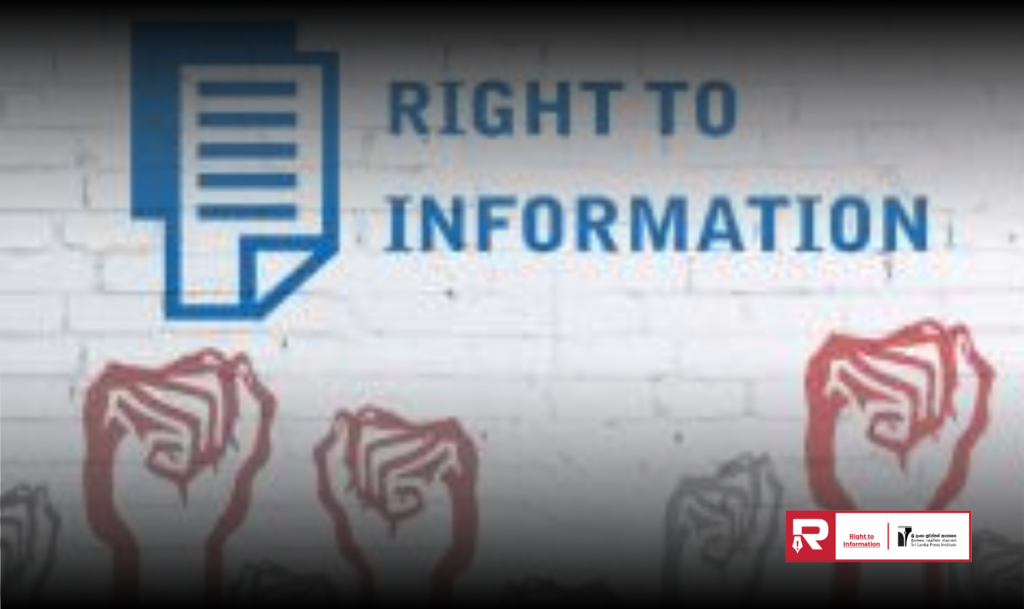
The Importance of the Right to Information in Building a Democratic State
by Srimal DC

The right to information, or the right to access information, is recognized globally as a fundamental human right, and the United Nations Human Rights Council (UNHRC) supports this right. It promotes transparency and accountability in a country’s governance. Through the 19th Amendment, the Constitution of Sri Lanka recognizes the right to information as a key component of democracy, ensuring that citizens can hold the government accountable and participate in decision-making processes. This responsibility is not only the duty of Sri Lankan citizens but also that of the authorities to provide requested information. The implementation of this legislation holds significant importance in the creation of a truly democratic state. Therefore, even though several years have passed since the enactment of this law, it is timely to reflect on its current significance.
The right to information, or the right to access public information, is a fundamental element of democracy. It allows citizens to hold their governments accountable and ensures transparency in decision-making processes. In Sri Lanka, this right is protected under the Right to Information Act (RTI Act), which was enacted in 2016 and came into effect on February 3, 2017, allowing citizens to request information from public authorities.
The right to information refers to the public’s ability to request and obtain information from government institutions and officials. It covers a broad range of information, from how decisions are made within the government to details about policies, budgets, and public services. The aim is to promote openness in governance by ensuring that citizens are informed about issues that affect them.
The Right to Information Act No. 12 of 2016 is a significant piece of legislation in Sri Lanka, aimed at enhancing governmental transparency and combating corruption. Under this law, any citizen in Sri Lanka can request information from public authorities. This right extends across all levels of government, including local councils, ministries, state institutions, and certain state-funded non-governmental organizations.
Under this Act, every citizen has the right to access information. Unless categorized under specific categories such as national security or privacy, public authorities are required to provide information upon request in all other instances. Public authorities must maintain information properly, implying that they are required to keep records and provide clear responses to information requests. The RTI Act has established a specific procedure for requesting information. Citizens can submit written requests to the relevant public authority. If a request is denied, the applicant has the right to appeal the decision. The Act mandates that every public authority appoint an information officer to manage information requests and guide applicants through the process.
The Right to Information Act empowers citizens, serving as a tool for protecting their rights.
Through access to information, citizens can understand how government officials make decisions and whether public funds are being used appropriately. This process ensures transparency. The Right to Information Act creates an open system for officials to share data with the public, promoting good governance and allowing their actions to be scrutinized. As a result, citizens have greater access to information, increasing the government’s accountability.
While the Act provides broad access to information, there are notable exceptions. Certain information, such as that related to national security, international relations, and privacy, is exempt from public disclosure. This law promotes transparency while ensuring that sensitive information is protected.
The Right to Information Act plays a crucial role in democracy. It is a powerful tool for strengthening democracy in Sri Lanka. By granting citizens the right to access information, it enables them to make informed decisions, participate in democratic processes, and ensure that public officials are accountable for their actions.
Since the implementation of this law, citizens, journalists, and civil society organizations have utilized it to uncover important information. This has helped expose corruption, misuse of public resources, and inefficiencies in government operations.
Although the Right to Information Act is a positive step forward, challenges remain in its implementation. Some public officials delay responding to requests, and public awareness of the law remains at a low level. The public’s understanding of the timeframes for appealing requests for information under the Right to Information Act is minimal, and there are indications of bureaucratic hurdles that hinder the smooth functioning of this law among the public. However, continuous advocacy and public education can help overcome these obstacles. Furthermore, some public officials lack a substantial awareness of their responsibilities regarding information disclosure. This issue also requires the attention of authorities.
The Right to Information Act is a crucial instrument in Sri Lanka’s journey toward transparency and accountability. It empowers citizens to access information, scrutinize public officials, and call for better governance. As more people in Sri Lanka utilize the right to information, this Act will continue to play a decisive role in strengthening democracy in the country.








